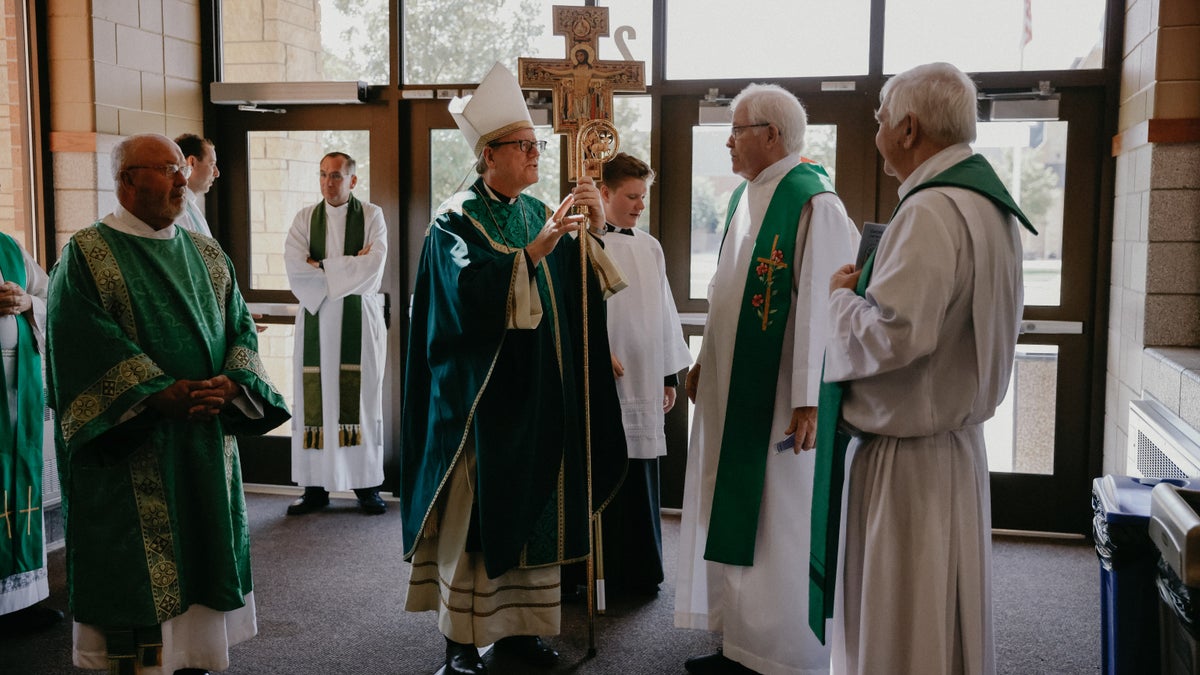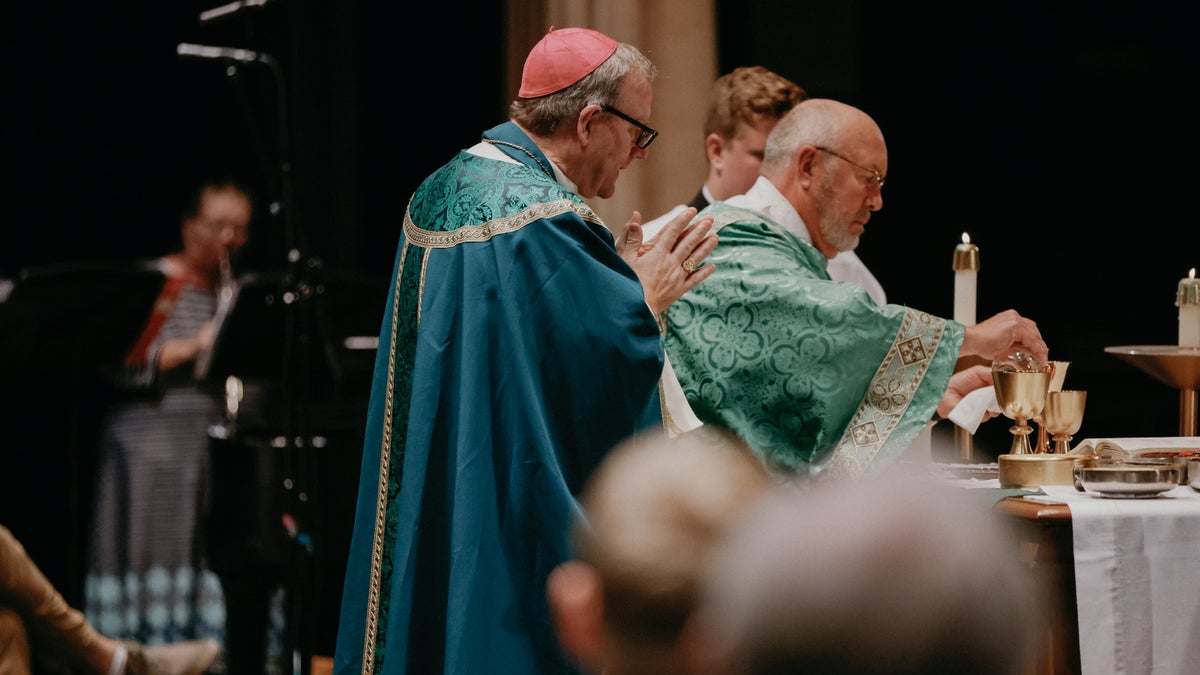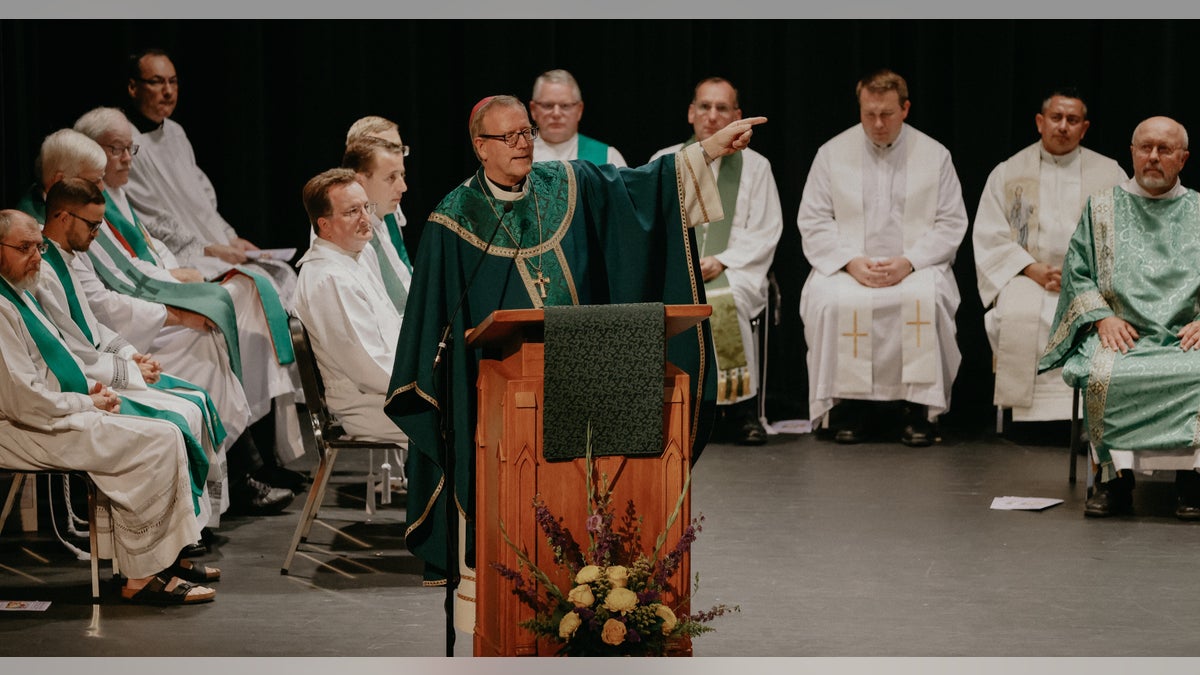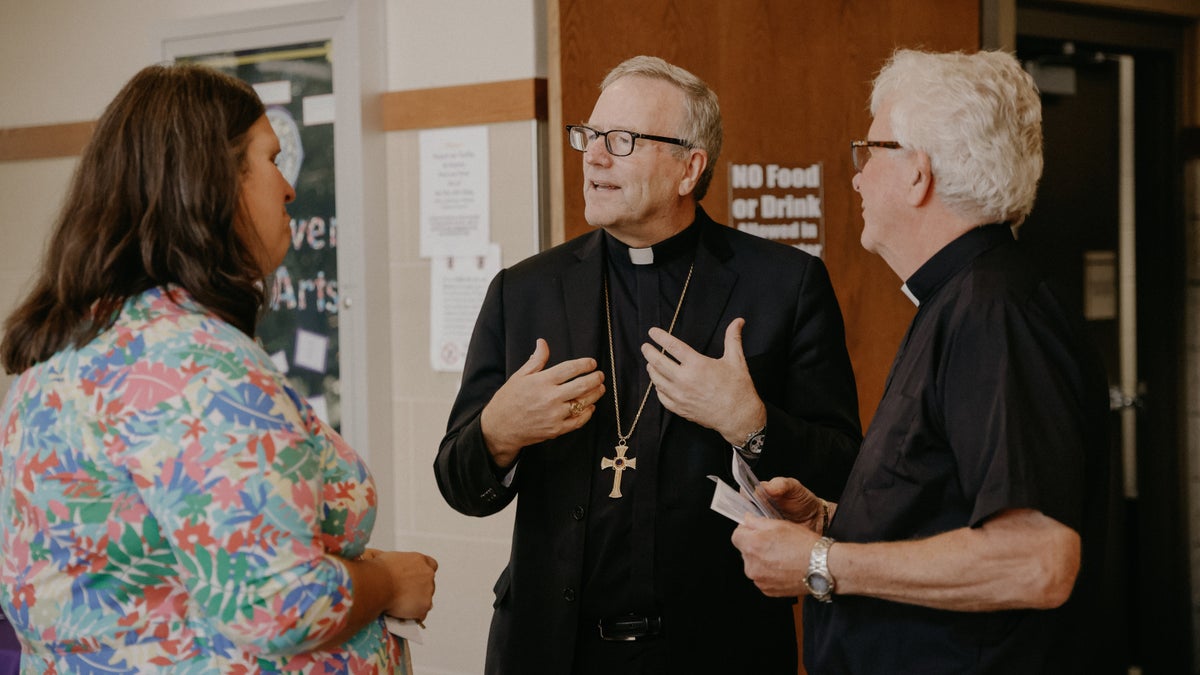Raymond Arroyo: This media outlet demonizes Catholics for praying the rosary
The Atlantic equates praying the rosary with extremism… and the Democratic candidate for governor in Pennsylvania awkwardly returns to the trail. Raymond Arroyo has it all in Seen and Unseen.
Attempting to make the Catholic Church more simple and appealing to the mainstream culture has proved disastrous, according to the most famous bishop in the United States.
Bishop Robert Barron, a controversial figure on both the secular left and right for his nonpartisan ethical advice and largely apolitical social advocacy, says the church's attempts to modernize have been disastrous.
"Dumbed down Catholicism has not helped evangelization. Quite the contrary," the bishop ruminated in a Sunday sermon last week. "We did this to ourselves."
Barron, of the Dioceses of Winona-Rochester, 62, is the most widely-followed online Catholic cleric in the country aside Pope Francis himself.
While his episcopal office concerns his parishes in Minnesota — where he is already widely known — his public influence stretches around the world via his books, videos, radio shows and documentaries with his Word on Fire ministries.

Bishop Robert Barron of the Diocese of Winona-Rochester, Minnesota, speaking with priests and seminarians before mass (Word on Fire Ministries)
Barron — who rebukes being categorized as progressive, conservative or anything other than "Catholic" — consistently finds himself in the spotlight for commentary on Catholic social issues due to his established online celebrity.
"So, in a way, we met the enemy, and it's us. We did such a bad job as teaching our faith and making it beautiful and making it intellectually compelling," Barron told Fox News Digital in an exclusive interview. "Many of the disaffiliated [Christians who left their church and no longer claim religious affiliation] have said, ‘I never got my questions answered. I had all kinds of questions. I never got good answers.'"
The Catholic Church in the U.S. is currently entrenched in a deep and long-standing cultural war both against political adversaries outside its communion and internally among its own members.

Bishop Robert Barron of the Diocese of Winona-Rochester, Minnesota celebrates Mass at Lourdes High School (Word on Fire Ministries)
Catholics make up the majority of current sitting Supreme Court Justices — most of them social conservative — leading many progressives to warn of a takeover at the highest levels of the Judicial Branch by the church.
Conversely, much ink has been spilled over both President Biden and House Speaker Nancy Pelosi's claims of Catholic faith — critics from the church accuse them of ignoring basic moral teachings on abortion, gender theory and sexuality.
Despite the renewed prominence in the public consciousness, the church has not yet managed to buck the trend of overall declining attendance among Christian churches in the U.S.
ATLANTIC OP-ED CLAIMS CATHOLIC ROSARY HAS BECOME 'AN EXTREMIST SYMBOL'
In a Mass celebrated for incoming Catholic teachers and catechists, Barron blamed the continuing decline of church attendance — at least in the Catholic rite — on weak spiritual education and a disordered emphasis on approachability.

Bishop Robert Barron of the Diocese of Winona-Rochester, Minnesota (Word on Fire Ministries)
He said, "We reduced religion — often to feel good — to ethics."
Looking for a reason for the decay in Catholic theological education, many traditionalist Catholics point to the Second Vatican Council (also known as Vatican II), which began in 1962 and ended in 1965. The council established no new dogmas but attempted to update spiritual disciplines, aesthetics and styles of worship for the modern, globalized church.
Changes at Vatican II included dropping the requirement for masses to be said in Latin, a greater emphasis on church community, and modification of the liturgy to allow greater participation from the pews.
NEW YORK TIMES REPORT PAINTS 'PRACTICING CATHOLIC' BIDEN AS 'UNEASY CHAMPION' FOR ABORTION
Barron dismisses critics of the council, saying instead that the damage was done after the council when priests and prelates failed to implement its ideas intelligently.
"[The errors occurred] after the council, not because of the council," Barron said. "It was a pastoral disaster."
"The council was produced by the smartest Catholics in the mid-20th century," Barron said of Vatican II. "But I grew up in the first generation that was educated after the council, and we had terrible catechism."
In an attempt to reorient the church for the modern times, Barron argues too much emphasis was put on the temporal works of charity and justice — but at the cost of the crucial necessity of theology.
"The church was often reduced to ethics and more precisely, to social justice. Nothing wrong with ethics or social justice, but it was a kind of reductionism and the doctrinal element was underplayed," Barron continued. "A caving in to the very relativistic culture held sway. So that's been a problem for a long time."

Bishop Robert Barron of the Diocese of Winona-Rochester, Minnesota (Center) (Word on Fire Ministries)
POPE DERIDES BIDEN'S ABORTION VIEWS, CATHOLIC SELF-IDENTITY AS 'INCOHERENCE'
On Wednesday, Barron slammed a recent article in The Atlantic as "offensive," warning that America’s new woke religion is resurrecting anti-Catholic bigotry.
Barron commented on the "colossally stupid article that appeared in The Atlantic magazine that associated the rosary with some of these really militant extreme groups on the right" on his popular YouTube channel.
The Atlantic piece, by Daniel Panneton, suggested that Catholic prayer beads known as rosaries had become an "extremist symbol" and warned that Catholics are a "growing contingent of Christian nationalism."
CLICK HERE TO GET THE FOX NEWS APP
While the Bishop acknowledged that "there are some weirdos on the extreme right who associate their rosaries with their rifles and all this," ultimately, the article went too far. "What was so offensive in the article is just the insinuation that somehow the rosary as Catholics pray it is caught up in some sort of, you know, mindless militancy," he said.
This is part one of a multipart interview with Bishop Robert Barron of the Catholic Diocese of Winona-Rochester, Minnesota.





















